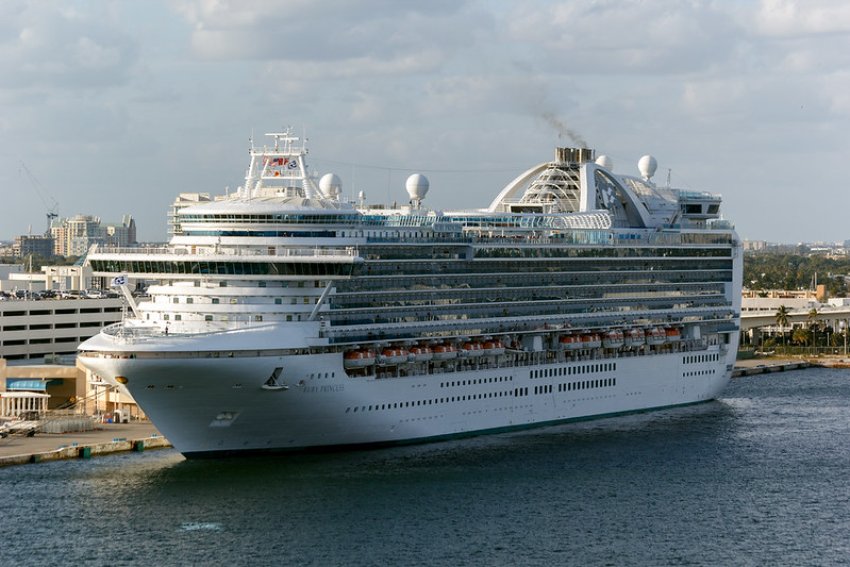
The New South Wales Special Commission of Inquiry into the Ruby Princess handed down its report into the cruise ship COVID-19 debacle on August 13.
It found that NSW Health has made some “serious mistakes”, some even “inexcusable”. However, it did not recommend any action be taken against state or federal officials.
Premier Gladys Berejiklian offered her “unreserved apologies” to those passengers who were infected, but has refused to sack health minister Brad Hazzard.
Meanwhile, a number of passengers, who were allowed to disembark without undergoing health checks and quarantine on March 19, have launched a class action against the operaters for negligence. Princess Cruises, owned by Carnival Corporation & plc, is incorporated in the tax haven of Bermuda and, according to Cruise Market Watch, is worth $3.3 billion.
Survivor Jayson O’Brien of Wellington in NSW told the ABC on August 17 that someone had to be held to account: “To me words are pretty cheap, aren’t they? Twenty-two people died on that ship and I could have been one of them; someone has to be liable.”
The special inquiry was established in April after thousands of passengers were allowed to leave the cruise liner at the end of two separate voyages in March. Both times the ship docked in Sydney, some passengers were displaying COVID-19-like symptoms.
In the weeks that followed, 663 Ruby Princess passengers tested positive for COVID-19 here and around the world. Twenty eight people died.
At the time, NSW was Australia’s worst coronavirus cluster, an undesirable title it held for months until Melbourne’s hotel quarantine debacle escalated.
The Maritime Union of Australia (MUA) has been vocal about the authorities’ mistreatment of the crew and passengers. It campaigned for the crew to be brought onshore to be tested, for those who were clear to be flown home and for the liner to be deep cleaned in NSW.
The MUA was critical of the special inquiry’s narrow terms of reference and the fact that federal public servants were not allowed to give evidence. It means that the public “are being denied vital answers about the Ruby Princess cruise ship debacle” it said and that the findings “will be fundamentally flawed”.
Lawyers representing maritime unions requested that Berejiklian expand the terms of reference to allow for the proper examination of: the availability of testing and medical treatment on the vessel; the facts behind the transfer of the vessel to Port Kembla; the treatment of crew; and the circumstances of their eventual repatriation.
Health and border control failures after the Ruby Princess docked led to a cluster of COVID-19 infections causing hundreds of infections and dozens of deaths.
Despite this, key federal public servants refused to testify before the inquiry.
MUA Sydney assistant branch secretary Paul Garrett was scathing about the inquiry’s terms of reference, saying it would be unable to provide the sort of information needed to prevent a repeat of the disaster.
“Key questions will not be answered because the scope of the inquiry was too narrow, and key government officials with intimate knowledge of the situation have been shielded from appearing.”
Garrett said it was “imperative” that there was a full examination of the “inadequate testing and treatment on board, the treatment of crew and the reckless situation where the vessel was sent to Port Kembla, away from hospitals with more capacity to treat the outbreak among crew members”.
“The health and safety of the 1200 crew members was disregarded by authorities at every stage … this inquiry will do nothing but assist with the cover-up of their shameful treatment. The voices of the workers both on the ship and on the shore deserve a chance to be heard.”
While the inquiry identified “serious”, “inexcusable” and “inexplicable” mistakes were made by NSW Health, it refused to make any recommendations. According to Commissioner Bret Walker, it would be “inappropriate” and “unhelpful” to make recommendations to “experts” that “amount to no more than ‘do your job’”. It was apparently enough that health authorities had recognised mistakes were made and would “do things differently if they had their time again.
“NSW Health should have ensured that cruise ships were aware of the change to the definition of a ‘suspect case’ for COVID-19 made on 10 March,” the report said. “This would have resulted in the identification of such cases on the Ruby Princess.
“NSW Health should also have ensured that such persons were isolated in cabins. These were serious mistakes,” it said.
The report said the risk rating system used by NSW Health, which classified the Ruby Princess as low risk meaning that no action was needed was “inexplicable as it is unjustifiable” and “a serious mistake”.
Yet, despite canvassing “mistakes and failures in decision-making”, Walker said that “There are no ‘systemic’ failures to address. Put simply, despite the best efforts of all, some serious mistakes were made,” he said.
Walker’s finding that no NSW official was culpable absolves Hazzard of any personal responsibility.
It begs the question of what happened to the principle of ministerial responsibility for departmental failings? The concept of ministerial responsibility has disappeared.
The commissioner also absolved federal officials, in particular the Australian Border Force and the Department of Agriculture, of any wrongdoing.
Labor Senators grilled federal officials about their role at a Senate COVID committee on August 18. Agriculture department authorities admitted failures by “omission” in allowing passengers to disembark from the stricken vessel.
Investigations by NSW Police into the Ruby Princess debacle are ongoing. In the meantime, an abject apology from the Premier is all the victims have to hold on to. As the MUA has pointed out, the sad story of the Ruby Princess has yet to be fully told.